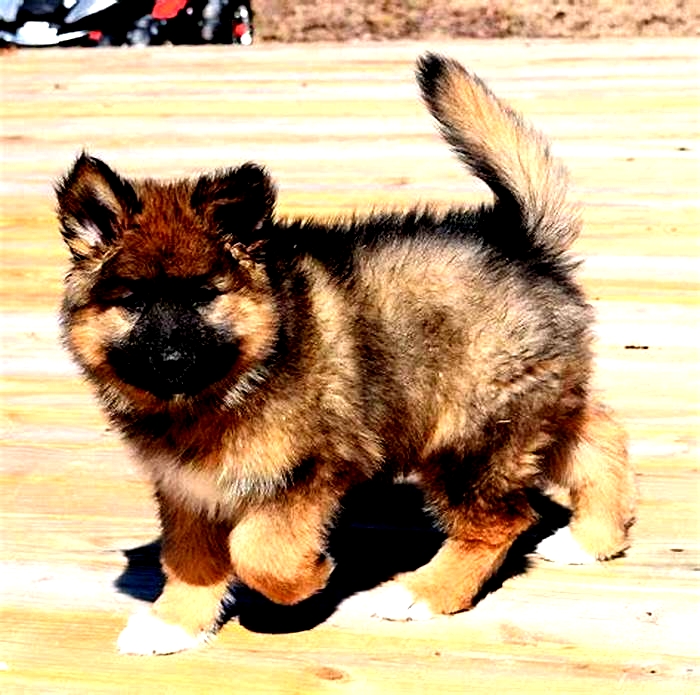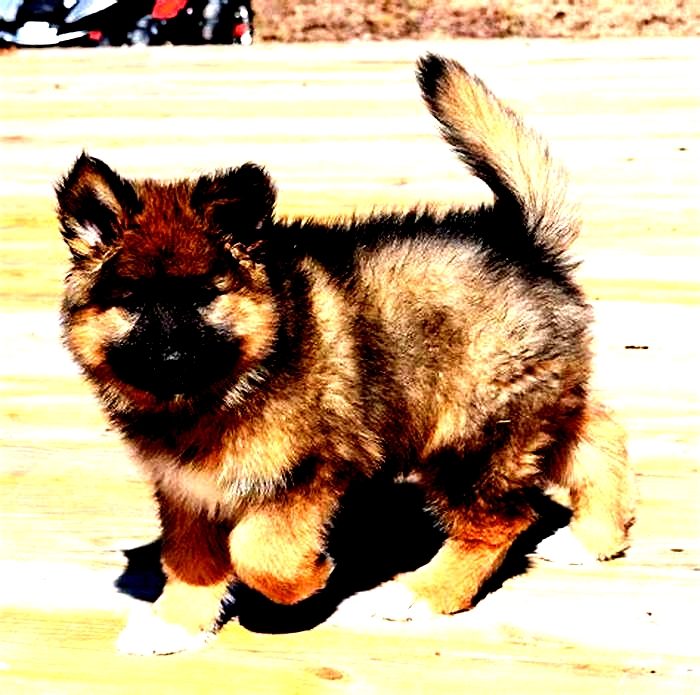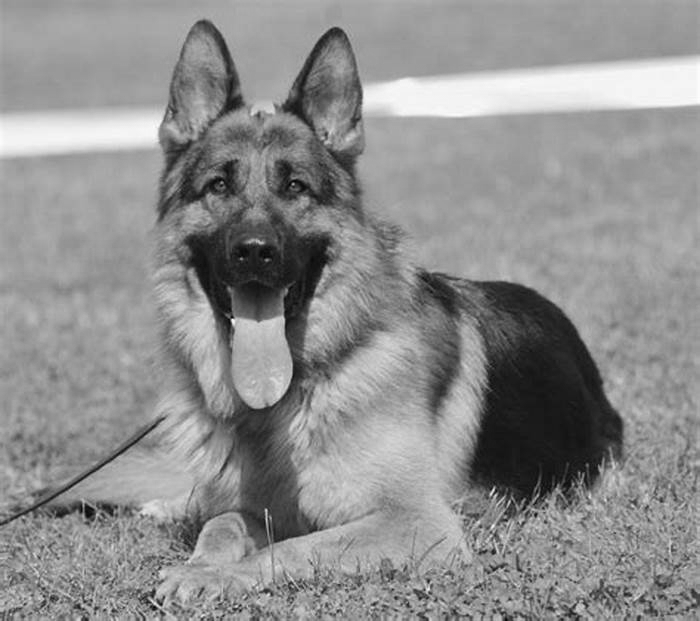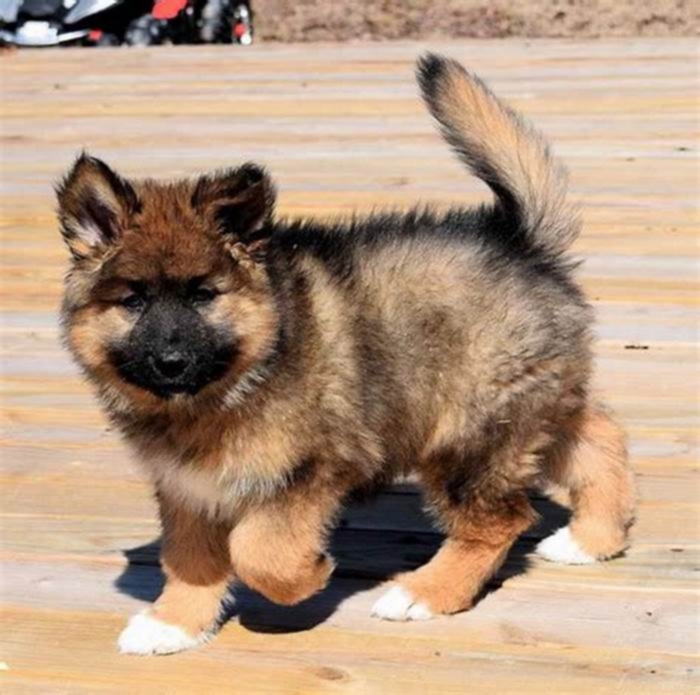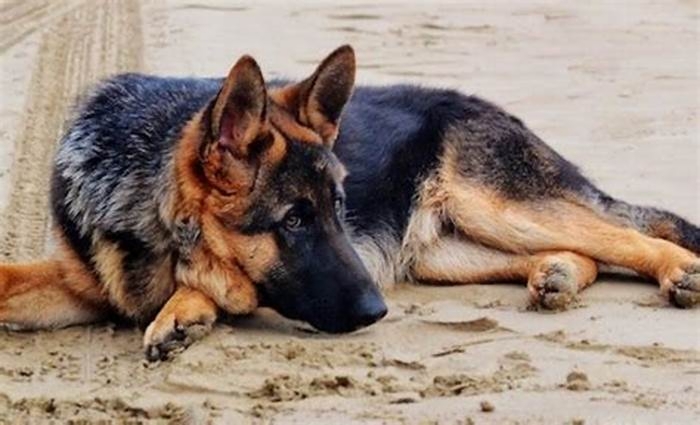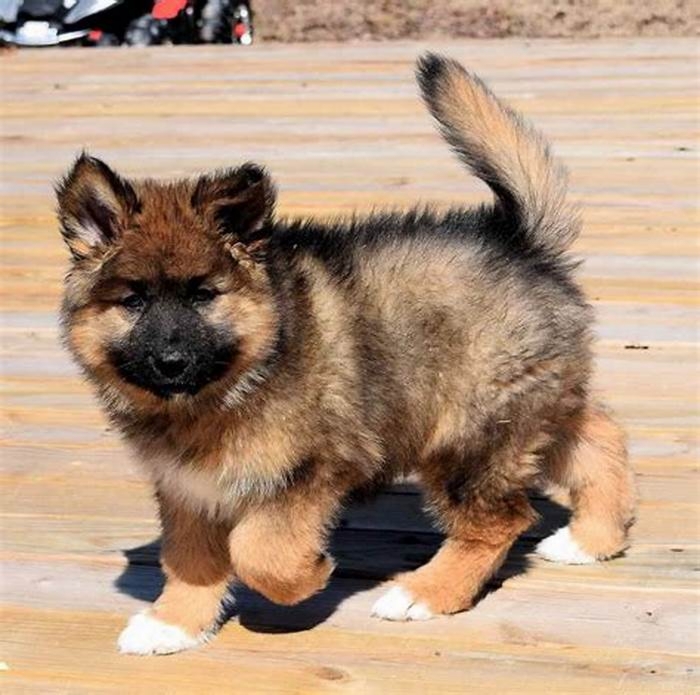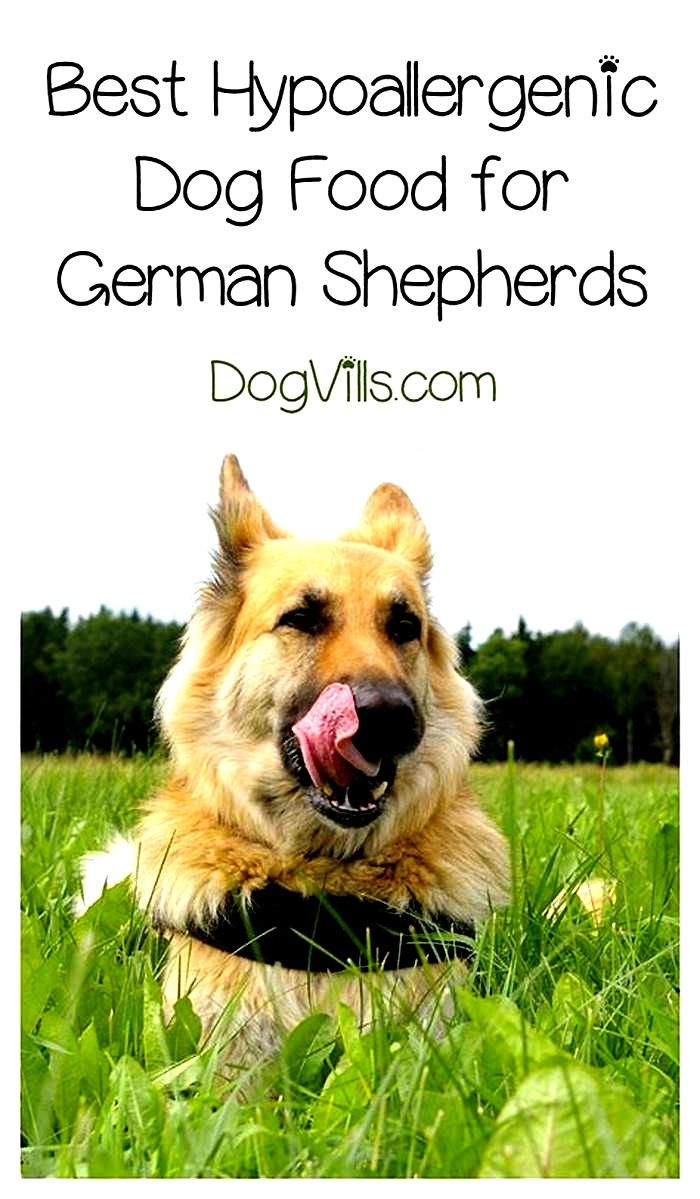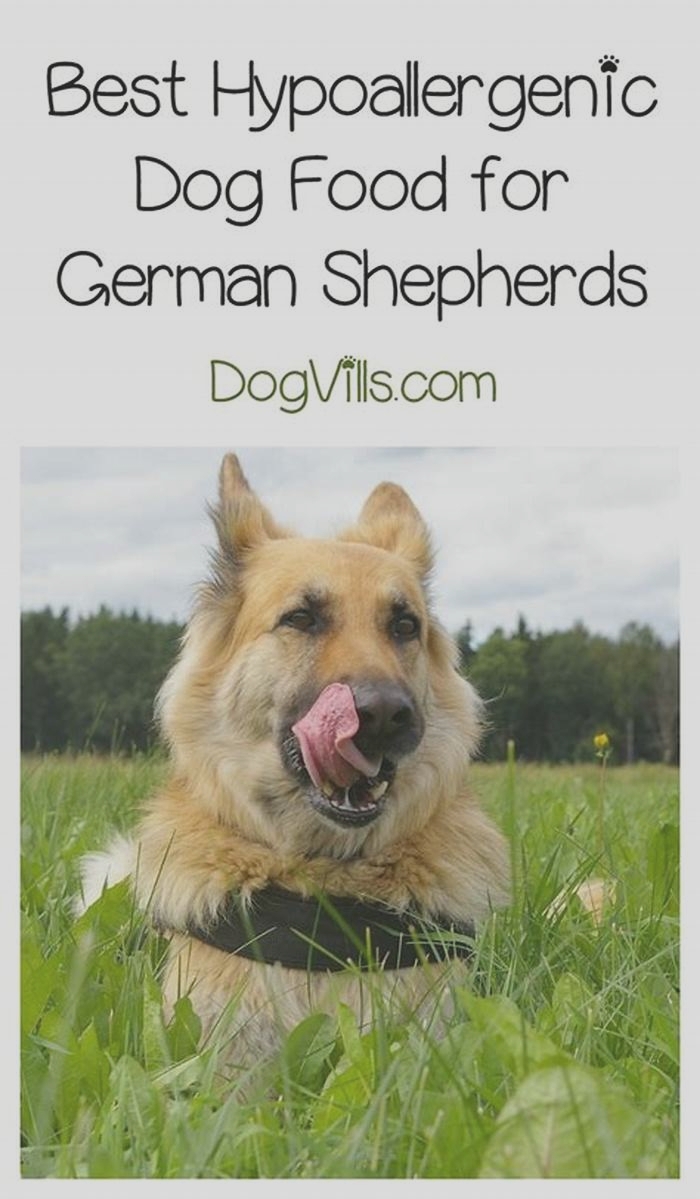are german shepherds hypoallergenic
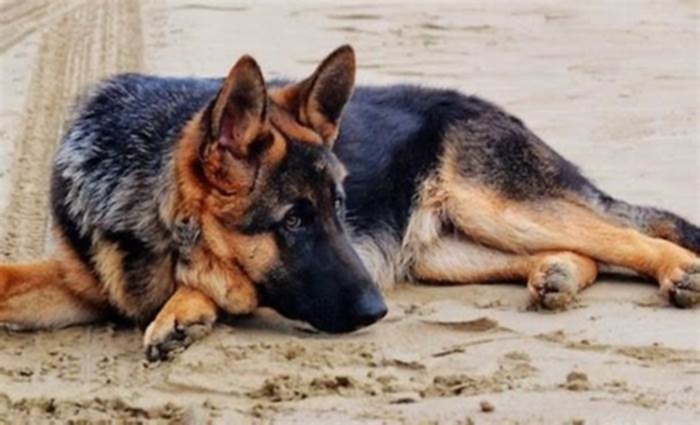
Are German Shepherds Hypoallergenic?
If you have allergies and are thinking about getting a German Shepherd you may have wondered, are German Shepherds hypoallergenic? This article will answer that question as well as give you some tips of how to reduce allergens if you have a non-hypoallergenic dog.
So, Are German Shepherds Hypoallergenic?
No, German Shepherds are not hypoallergenic. German Shepherds shed year long, but twice a year they blow their coat and shed ever more heavily, which isnt good for people with pet allergies.
If dog fur and dander irritate you, then you may want to consider another dog breed that doesnt shed. If your allergies are not too severe you can try the tips below to reduce the allergens caused by GSD fur.
Reasons Why German Shepherds Are Not Hypoallergenic
Double coat
German Shepherds have thick double coats that shed a year long. In the fall, their double coat grows thicker in anticipation of winter, whereas in the spring, they lose some of that extra protection to keep them cool for the summer.

The spring and fall are known as shedding season, because that is when GSDs blow their coats in accordance with the change of the seasons. During this time, they shed A LOT.
All of this shedding can be bad for someone with allergies because of all the pet dander floating around.
Pet dander
Most allergies are actually caused because of the pet dander not just the shedding. Pet dander can stick to your dogs fur, can get on your hands when you pet your pooch, and can float around in the air.
Normally, people have worse allergies around a dog breed that sheds. This is because as their fur sheds, the dander sticks to the fur, and as the fur floats around the house, the dander is spread everywhere. Thus, dogs that dont shed are usually better for people with allergies.
How To Tell If You Are Allergic To German Shepherds
If you are around a GSD and get symptoms such as running nose, stuffy nose, itchy or watery eyes, sneezing, or coughing, you may be allergic to dogs. This is more likely to be true if as soon as you leave the animal the symptoms magically disappear.
Some people are only allergic to a specific type of pet, whereas others are allergic to all pets.
Other people may not start off being allergic to dogs but develop an allergic reaction to them over time.
If this is you, there are some things you can do to reduce the amount of pet dander in your home, which will reduce your allergies.
Ways To Reduce Allergies Living With A German Shepherd
Some people who have a really bad allergic reaction to pet dander wont be able to live with a German Shepherd at all. However, others whose allergies arent as bad, could live with a GSD as long as they take certain actions to keep the dander from accumulating too much in the house.
Below are some suggestions to reduce the allergies caused by German Shepherds:
Regular brushing
One of the best things you can do to reduce dog allergies is to brush your GSD regularly. Regular brushing removes all the excess hair that would normally end up floating around the house.
Removing the loose hair also helps to reduce the amount of pet dander on your pet. When brushing your German Shepherd, it is best to brush them outdoors, so that the hair and dander can be released outside instead of in your home.
Under normal conditions, German Shepherds have low maintenance grooming needs. You can brush them once a week or so and they will look excellent. However, during the shedding season, they need to be brushed multiple times a week to keep the hair at bay.
Using a brush that gets the undercoat
Since GSDs have a double coat, one of the best types of brushes for a German Shepherd is one that attacks their undercoat. This is especially important during shedding season, as the undercoat is the culprit to generating all of that excess fur.
Vacuuming often
Another key to reducing allergens is vacuuming very often, especially when your dog is blowing their coat. Investing in a good vacuum for pet hair will do wonders in reducing the pet dander, as many pet vacuums are designed specifically for eliminating pet dander from the carpet.
Normally, I vacuum once a week. However, during the shedding seasons, I have to vacuum two to three times a week to keep up with the excess fur.
Medicine
Some people are able to effectively manage pet allergies with medicine. If you think you are having an allergic reaction to pet dander, see your doctor and get their suggestions for what medication you can take. With an luck, the medication will make you allergy free.
Restrict your GSD to certain areas
Another way of managing dog allergies is to keep your pet out of certain rooms. Since German Shepherds are clingy dogs, this may not be super easy to do, but keeping your GSD out of certain rooms can provide you with a dog-free and allergy-free space to retreat to if needed.
Keep your clothes clean
Another tip for reducing dander is to keep your clothes as clean as possible. When you are around your dog, dog fur and dander sticks to you clothing. Thus, even when you arent around your dog, you could still be experiencing an allergic reaction.
Some people even have clothes that they only wear to do activities with their dog, and then other clothes that they never wear for dog activities.
Reducing the dander on your clothes will keep you from sneezing all day long, even when you arent around your dog.
Invest in an air filtration system
An air filtration system is another great option for reducing the pet dander in your home. These systems filter out the dander and dirt in the air that is known to cause allergies, so there is less of it in your home.
They even make systems specifically designed to handle pet dander, so it is worth a try if you want a GSD but suffer from pet allergies.
Dont let your dog sleep with you
Another big way to reduce allergies is to not let you dog sleep with you. There are varying opinions on whether you should let your dog sleep in your bed, but for allergies it is clear that clear that a dog sleeping with you will have a negative effect on your allergies.
Although it can be hard, it is best never to start the habit of letting your dog get in the bed if you are allergic to them. Invest in a comfy dog bed and they will be just fine.
Final Thoughts
German Shepherds are great dogs, and although they are a wonderful breed, they may not be right for everyone, especially someone who suffers from pet allergies. German Shepherds are not hypoallergenic, and they shed year-round.
If you suffer from milder pet allergies, you may still be able to own a GSD if you follow the tips above to reduce pet dander in your home. Regular brushing, vacuuming, taking medicine, getting an air filtration system, and keeping your clothes clean are all things that can help reduce your allergic reaction.
If you think you may be allergic to German Shepherds, before getting one, try to go around someone elses GSD to see if you present any allergy symptoms. If owning a German Shepherd will be too much for you because of allergies, there are many other great dog breeds that are hypoallergenic for you to consider adding to your family.
Hypoallergenic German Shepherds: What You Need to Know
German shepherd dogs, or GSDs, are known for their loyalty and protective nature, making them a popular choice for families. However, if you suffer from allergies, you may be wondering if German shepherds are hypoallergenic. Unfortunately, the answer is no. German shepherds are one of the worst breeds for allergy sufferers, as they can trigger mild to severe allergic reactions. In this article, we'll explore why German shepherds aren't hypoallergenic and provide tips for managing your allergies.
What Causes Dog Allergies?
Contrary to popular belief, dog allergies are not caused by dog hair. Rather, they are triggered by a protein found in dog dander, saliva, and urine. This protein gets into a dog's fur when they lick themselves or when dead skin cells flake off. When dogs shed their hair, they also spread these allergens, leading to allergy symptoms such as sneezing, a runny nose, and itchy eyes. It's important to note that individuals with severe allergies may experience shortness of breath or develop rashes when in contact with a dog's saliva.
Why Aren't German Shepherds Hypoallergenic?
German shepherds have a thick, double coat, which sheds heavily throughout the year. The outer coat provides weather resistance, while the dense undercoat helps regulate body temperature. This shedding process spreads dander, exacerbating allergies. The shedding is particularly severe during the fall and spring seasons, making allergy symptoms worse during these times.
What Can You Do If You're Allergic to German Shepherds?
If you have allergies and are considering getting a dog, it may be wise to opt for a more allergy-friendly breed. While German shepherd mixes may still cause allergy problems, German shepherd-poodle mixes can be a better option if bred for non-shedding coats. Third-generation puppies from dedicated breeders are more likely to inherit the non-shedding qualities of poodles.
If you already own a German shepherd and have allergies, there are steps you can take to minimize your symptoms. Regular vacuuming with a robot vacuum, keeping your dog off furniture and out of the bedroom, using air purifiers, and covering vents with filters can help reduce dander in your home. Additionally, bathing and brushing your dog regularly, feeding them high-quality dog food, and considering immunotherapy shots can also alleviate symptoms.
The Best Breeds for Allergy Sufferers Who Love German Shepherds
While no dog breed is completely hypoallergenic, there are breeds that shed less and are more suitable for individuals with allergies. If you're looking for a large family dog like a German shepherd, consider breeds such as the giant schnauzer, Irish water spaniel, Kerry blue terrier, Portuguese water dog, soft-coated wheaten terrier, or standard poodle. These breeds are known for their low shedding and can be a great alternative for allergy sufferers.
So, Are German Shepherds Hypoallergenic?
In summary, German shepherds are not hypoallergenic due to their heavy shedding and dander production. While you can take measures to minimize shedding and dander in your home, these steps will not eliminate allergies completely. If you have allergies and are looking to adopt a dog, it may be best to consider breeds that shed less. Giant schnauzers, poodles, and Portuguese water dogs are all excellent choices for individuals with allergies.
Remember, it's essential to spend time with a dog breed before making a commitment to ensure it doesn't trigger your allergies. For more information on different dog breeds and pet care tips, visit HowPetCare.
Keys to take away:
- German shepherds are not hypoallergenic and can trigger allergic reactions due to their shedding and dander production.
- Dog allergies are caused by a protein found in dog dander, saliva, and urine, rather than dog hair.
- Regular vacuuming, air purifiers, and covering vents can help reduce dander in your home.
- Consider bathing, brushing, and feeding high-quality food to minimize shedding and promote healthy skin and coat.
- If you have allergies, it may be best to consider breeds that shed less, such as giant schnauzers, poodles, or Portuguese water dogs.
- Spend time with a dog breed before adoption to ensure it doesn't worsen your allergies.
Remember to always consult with a medical professional for personalized advice regarding your allergies.
Are German Shepherds Hypoallergenic? (How to Make GSDs More Hypoallergenic)
You can adore dogs and still be allergic to them. What a curse, right? So this may lead you to wonder if there are any hypoallergenic dogs and whether a German shepherd is one of them.
German shepherds arent a hypoallergenic dog breed. Instead, German shepherds are hypoallergenic, meaning if you are prone to suffer from allergies due to pet allergens (the proteins in a dogs dander or saliva), then theres a high chance youll have an allergic reaction when a German shepherd is near.
Hypoallergenic Dogs and Why German Shepherds Are Allergenic
A hypoallergenic dog is a dog that has very little chance of setting off an allergic reaction. So what makes a dog hypoallergenic, and what is it that people are allergic to regarding dogs?
Technically, no dog is 100% hypoallergenic, even though people seem to have other ideas. This comes from the fact that some dog breeds are less allergenic or rather more hypoallergenic.
In other words, if you are sensitive and allergy-prone, having a hypoallergenic dog breed is less likely to cause allergic rhinitis, which comes with the symptoms of red, itchy eyes, congestion, or a runny nose, rashes or hives, asthma attacks, sneezing, and/or coughing.
So dogs that arent considered as allergic are those breeds that have non or low-shedding coats that produce less dander. Dander is dead skin cells, which is what people are allergic to, in addition to the proteins found in a dogs saliva. When a dog sheds, this dander is then released into the air around you and what you breathe in.
So, less shedding equals less dander, which equals a lower chance of you experiencing symptoms related to allergic rhinitis.
That brings us to whether or not German shepherds are hypoallergenic.
German shepherds are allergic dogs, not hypoallergenic. This is because these dogs shed a lot! And a lot isnt an underestimation.
As naturally heavy shedders, German shepherds shed the whole year. However, the heaviest sheds happen twice a year. These heavy sheds are during the two to four weeks when fall moves into winter and spring into summer. It can take a German shepherd eight weeks to completely blow its coat.
Thus, with shedding all year round and blowing their coat twice a year, the German shepherd produces a lot of dander, which makes this an allergenic dog theres a high chance the dander from this dog breed will cause you to have an allergic reaction if you are prone to being allergic around dogs.
How to Make German Shepherds More Hypoallergenic


If you have your heart set on a German shepherd but suffer from allergies, then theres great news. There are a few ways you can make your German shepherd more hypoallergenic and decrease the chance of you having an allergy attack. Heres how:
Groom Your Dog More Often
Grooming your German shepherd more often will prevent tufts of loose fur from overtaking your home. Grooming removes loose fur, tangles, and any debris (such as dander) in their coat. This also improves your poochs coat health and makes for a shiny coat.
It is ideal to brush your Shep at least three to four times a week. Using a slicker brush, groom in the direction the fur grows and use short strokes with a firm pressure to ensure the hair doesnt needlessly break or pull out.
Pro tip: if you suffer from allergic rhinitis, get another member in your family to groom your German shepherd or take your pooch to the groomer to reduce the chance of you being exposed to any allergens.
Using Deshedding Products
You can also opt to use a de-shedding product like a shampoo or supplement. A de-shedding shampoo exfoliates and cleanses your dogs coat while encouraging new hair growth, strengthening hair follicles, and removing loose fur. This kind of shampoo also conditions the coat to make it shiny.
A de-shedding supplement nourished your poochs hair and skin with the essential nutrients needed to reduce shedding while improving the overall condition of the coat.
Choose a supplement in liquid, powder, or chew form, and mix this in your dogs meal according to the instructions. Ensure the supplement contains zinc, biotin, omega 3 and 6, and vitamin E for the best results.
While you can safely add the supplement to your dogs meal, ask a groomer, your partner, or your friend to bathe your German shepherd in the de-shedding shampoo.
Change Your Dogs Diet
Another way to help your Shep strengthen their hair follicles to prevent breakage (which may reduce shedding), is to ensure your pooch eats a healthy and balanced diet.
Ensure that the kibble you feed your German shepherd contains high-quality protein sources, with protein listed as the first ingredient on the label. Good sources of protein for a German shepherd are fish, beef, and poultry.
Next, your dog should eat quality carbohydrates, grains, fats, and vegetables. These can be in the form of rice, barley, rolled oats, peas, blueberries, carrots, and omega-3 fatty acids. With the grains, make sure your pooch isnt allergic to gluten.
Clean Daily
Cleaning daily gets rid of the danger that lies on the surfaces in your home. So vacuum your house or the rooms your dog spends time in every day.
You can also use certified asthma and allergy-friendly air cleaner to remove any dog allergens from the air in your home.
Pro tip: Use a HEPA vacuum cleaner that has strong suction capabilities to remove microbes, dust particles, pollen, and pet dander from your home.
Keep Your Dog Away From Your Bedroom
You spend at least a third to half of your life in your bedroom. So keeping your dog away from your sanctuary keeps dander and other pet allergens at bay while you sleep or spend time in your bedroom.
Keep the door to your bedroom closed at all times. And if your pooch had access to your room before you decided on a no access policy, you need to thoroughly clean your bedroom and everything in it to remove any dog allergens.
Teach Your Dog to Walk at Liberty
Another strategy to reduce coming into contact with dander is to train your dog to walk at liberty. This means your German shepherd learns to not come near you or touch you, which at least limits the dander coming into contact with your clothes. You can use a clicker and treats to reward your Shep instead of petting them.
Medication For You
The last strategy is to ask your medical healthcare professional to prescribe antihistamine medication and nasal sprays, allergy shots, or consider other forms of immunotherapy.
Are German Shepherds Hypoallergenic FAQs
Can you get German shepherds that dont shed?
There isnt a German shepherd that doesnt shed. However, if you cross a German shepherd with a poodle, the doodle may inherit the low-shedding trait from its poodle parent. So a doodle thats part German shepherd may be more hypoallergenic if it doesnt shed a lot.
Do German shepherds shed a lot?
German shepherds are one of the dog breeds that shed a lot. They shed continuously, and they also blow their coats twice a year when the seasons change from winter to spring and summer to fall.
Do German shepherds make you sneeze?
Youll sneeze and exhibit some other symptoms like a stuffy or runny nose, watery or itchy eyes, hives, and possibly coughing if you are allergic to dog allergens. Even if your allergy alarms didnt go off initially when you got a dog or were around them, it is possible to develop an allergic reaction to dogs over time. It is the dogs saliva and dander that you are allergic to, and any dog that sheds a lot will make you sneeze.
Final Thoughts
Knowing which dogs are hypoallergenic and which dogs are allergenic is a good thing if you are allergic to pet allergens. Now you can rather choose a dog breed that is hypoallergenic so you dont have to worry about pet dander and saliva setting off a bout of sneezing, itchy and red eyes, and hives.
However, if you still want a German shepherd, you can make this allergenic dog breed more hypoallergenic by:
- Regularly cleaning your home
- Grooming your dog often (or get a professional dog groomer to do it for you)
- Using de-shedding shampoos and supplements
- Ensuring your dog eats a healthy and balanced diet
- Teaching your German shepherd to walk at liberty
- Keeping your dog away from your bedroom or limiting access
- Asking for immunotherapy solutions or getting antihistamine medication
Good luck!

